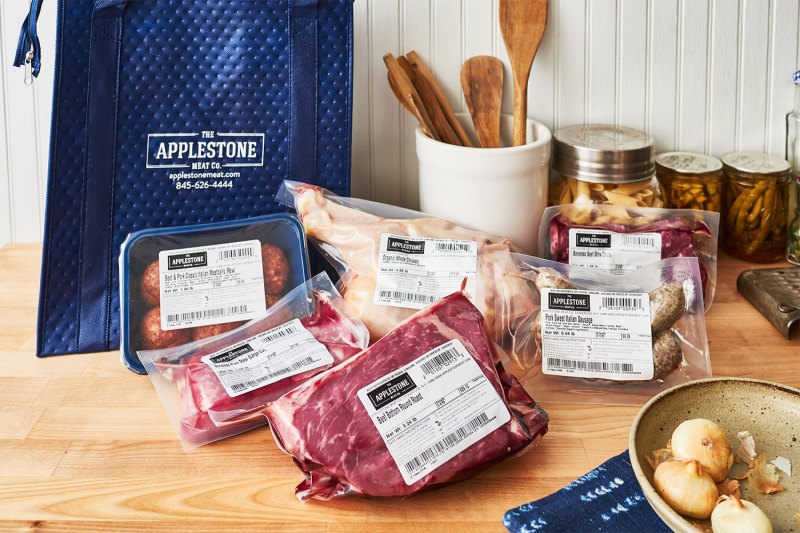Not long ago, vending machines represented the bottom rung of the on-the-go food hierarchy — somewhere between gas station sushi and Economy Class airplane lunches. That’s still true of most vending machines, but times are changing. Now, one innovative New York City butcher envisions a future where customers can shop gourmet-steakhouse-quality cuts of meat any time of day at the push of a button.
Applestone Meat Company is looking to revolutionize the fresh meat game by selling gourmet cuts through 24/7 automated vending machines. The NYC-based butcher currently stocks two locations just north of the city with fresh dry-aged steaks, pork butts, whole chicken, and ground lamb. Every piece is humanely raised hormone-free on a Hudson Valley farm, then prepared in ready-to-go, vacuum-sealed packaging. As with old-school automats, customers swipe their payment, make their meat selection, and watch the automated machine spin and drop it into place for them to take home.
The vending machines have been wildly successful for a few years. But, in this time of COVID-19, the idea makes even more sense. Every self-service transaction is contact-free, making it not only quicker and more convenient, but safer to boot. Owner Joshua Applestone says, “We want our stores to be a safe space. Initially, that meant building trust with our customers so that they know the meat we stock is sourced from animals raised without added hormones or antibiotics by farmers who are committed to their well-being. Now, that also means working to create a space where both our customers and staff feel protected.”
The idea of swiping your credit card in a machine that dispenses a whole bird or raw porterhouse sounds bizarre. It’s something most of us aren’t comfortable with, but only because we associate vending machines with junk food. Honestly, we’re just behind the times. The Japanese have been buying everything from whole flower arrangements to fresh produce to live lobsters out of vending machines for decades.

This all might sound like a ridiculous novelty or a clever marketing ploy. Joshua Applestone assured Bloomberg it’s not. Between Applestone’s two NYC locations — one in Hudson, the other in Stone Ridge — the latter represents 70% of its total sales. The 24/7 machines are so popular, in fact, that they need to be restocked multiple times each day. By the numbers, Applestone sells about 3,000 pounds per week.
Applestone Meat Company’s vending machines currently operate in two New York City locations. Due to their wild success, the company is already eyeing expansion to other major cities. God willing, meat “withdrawals” will one day be as easy and ubiquitous as taking cash out of an ATM.



